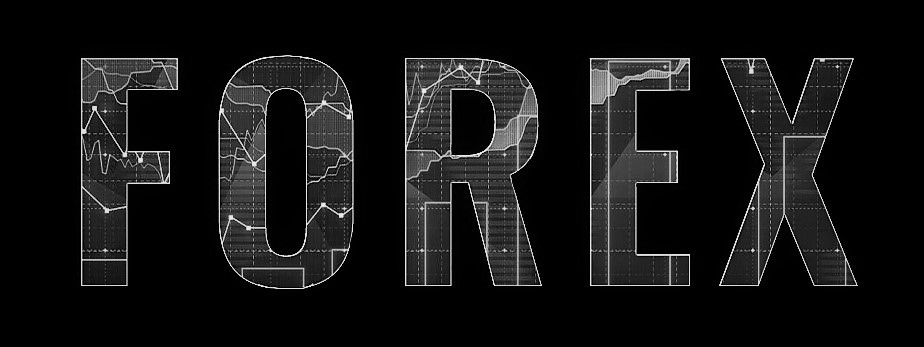FOREX TRADING
What is Forex?
The forex-market is a global market for trading of currencies that
often gets referred to as foreign exchange market or currency market.
Thereby Forex Trading means trading with currencies.
There are two important aspects:
1. The forex-market is not a presence market.
Traders trade via brokers and banks with each other.
2. It is possible to make profit with falling prices.

HOW DOES
FOREX TRADING
WORK?
The Forex market trades currencies whose values are constantly
changing. In this process, investors speculate on the value of a
particular currency and whether it will rise or fall compared to
that of another currency. The difference between the two currencies
depends on the exchange rate. After deducting payments to the broker
and tax deductions, the investor is ultimately left with the
return (net). It is possible to start trading in foreign exchange
with relatively small amounts of money. Currency rates are usually
affected by small fluctuations, which are only noticeable in the
range of the fourth decimal place, which is why professional
traders trade with leveraged derivatives. In this case, traders
in Forex trading receive additional capital after depositing a
security deposit (margin), which allows them to open new positions.
The additional capital creates a leverage effect. This leverage effect
allows you to take advantage of even the slightest price fluctuations.
A trader speculates that the US dollar will decrease in value (the
rate will decrease) and the Euro will increase in value (the rate
will increase). Therefore, at an exchange rate of €1.00 to $1.3,
the trader decides to buy €10,000 and thus sell $13000 at the same
time. In this case, the broker does not need to be given the full
amount. It is sufficient to deposit a margin of, for example, 1% or
any other arbitrary amount. 1% in this case would be $130.
EXAMPLE
WITH
PROFIT
The trader has sold 10,000
EURO at a price of 13,300 USD,
which corresponds to a profit
of 300 USD (the difference
between buying and selling).
The margin (130 USD) is
returned and the trader
gets another 300 USD.
Gross profit (pre-tax earnings)
Individual broker costs
and taxes must be deducted
to determine the net profit.
EXAMPLE
WITH
LOSS
The trader has sold the 10,000
EURO at a price of 12,700 USD,
which is a loss of 300 USD.
The loss is greater than the
margin (130 USD), which is
why debts arise.
The security deposit of 130
USD is not refunded and the
trader has to pay another 300
USD to compensate for the loss.
Due to the deduction of
broker costs and taxes,
the loss increases again.
ORIGIN OF
EXCHANGE RATES
An exchange rate determines the difference between profit and loss in
trading. The actual exchange rate of the currency is determined on the
interbank market. Exchange rate changes are caused mainly by supply and
demand. The more popular or in demand currencies are, the higher their
appreciation. Demand and supply, in turn, are influenced by political
and economic developments. This makes the foreign exchange market
extremely complicated/complex. But also the economic conditions (business
cycle) of different countries affect the supply and demand. The
purchasing power of a currency is reflected in inflation and deflation
and national banks also try to influence the economic development. The
zero interest rate policy of the European Central Bank (ECB) is an
example of this, because when a central bank changes the key interest
rate, this directly affects the foreign exchange market. However, there
are also so-called commodity currencies, which react sensitively to price
fluctuations of certain commodities. I.e. a currency reacts for example
to the price changes of the gold price. The exchange rate between
currencies can also depend on exports, since exports are always paid in
the respective national currencies. This in turn increases demand.
Furthermore, many other political events can influence the development.

WHEN ARE
FOREIGN
CURRENCIES
TRADED?
The time difference allows forex trading 24 hours a day during the week,
as the exchange is only closed on weekends. However, in Germany you
can trade continuously from Sunday evening to Friday evening. There
are a lot of transactions on weekdays, especially between 13:00 and
17:00, because the US and European markets are open at the same time.
PROS
It is possible to make profits
even in a market environment
characterized by falling prices.
The Leverage offers forex investors
high liquidity, low minimum
investment volume and high return
opportunities in case of success.
There are flexible trading hours.
CONS
The Leverage can be very high, which
is why only limited orders should be
placed. This also helps to avoid
significant margin calls or debts.
The complexity of the forex market
can be fatal for investors. Exchange
rate changes are usually unpredictable
and subject to huge fluctuations,
forcing traders to watch their
investments at all times, which
makes trading very time-consuming.
The sometimes high fees charged by
online brokers are not beneficial
for investors. They only tend to
reduce profits or increase losses.
Inexperienced investors may not
want to participate in foreign
exchange transactions. However,
most brokers offer demo versions.
Those are especially useful if you
want to gain experience and try
out new strategies without risk.